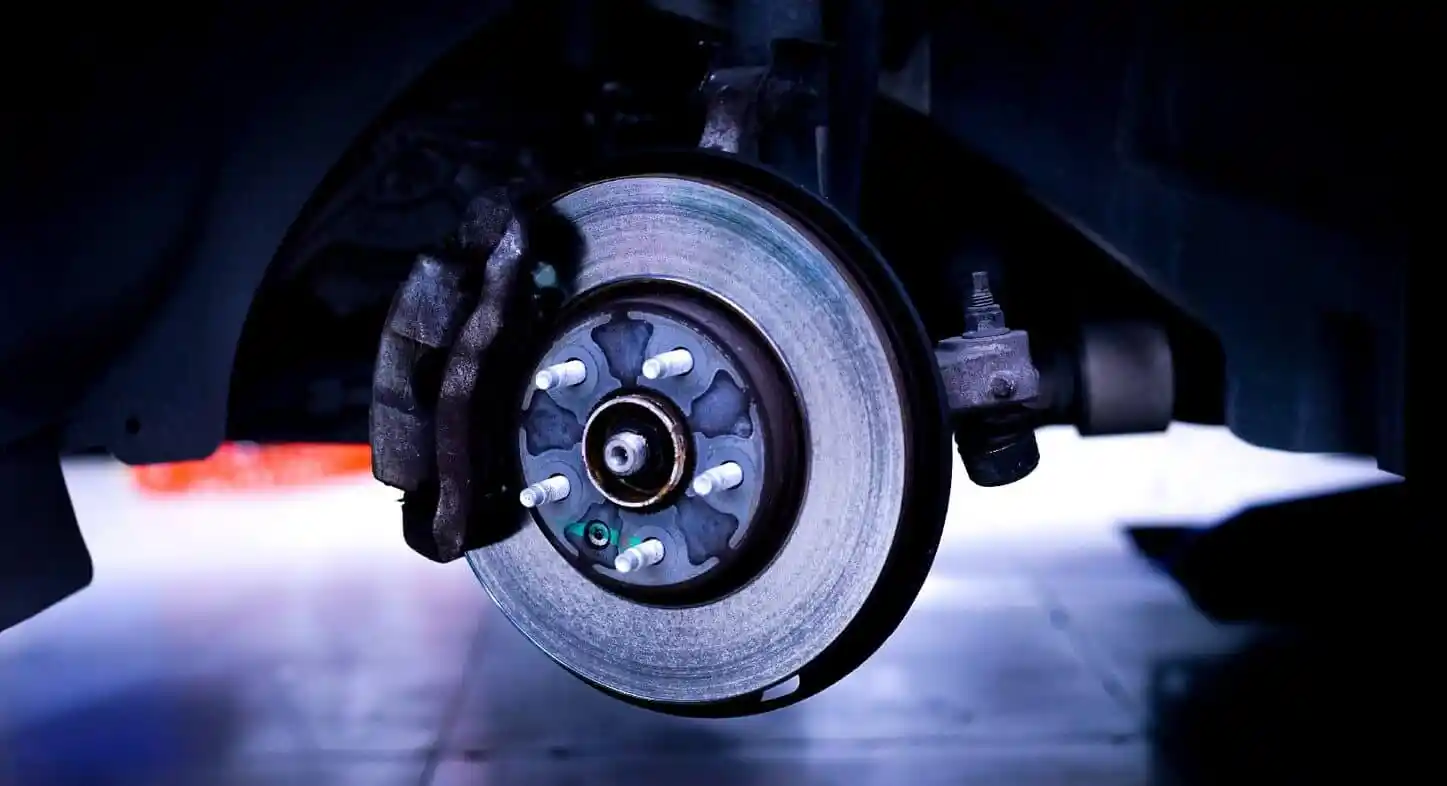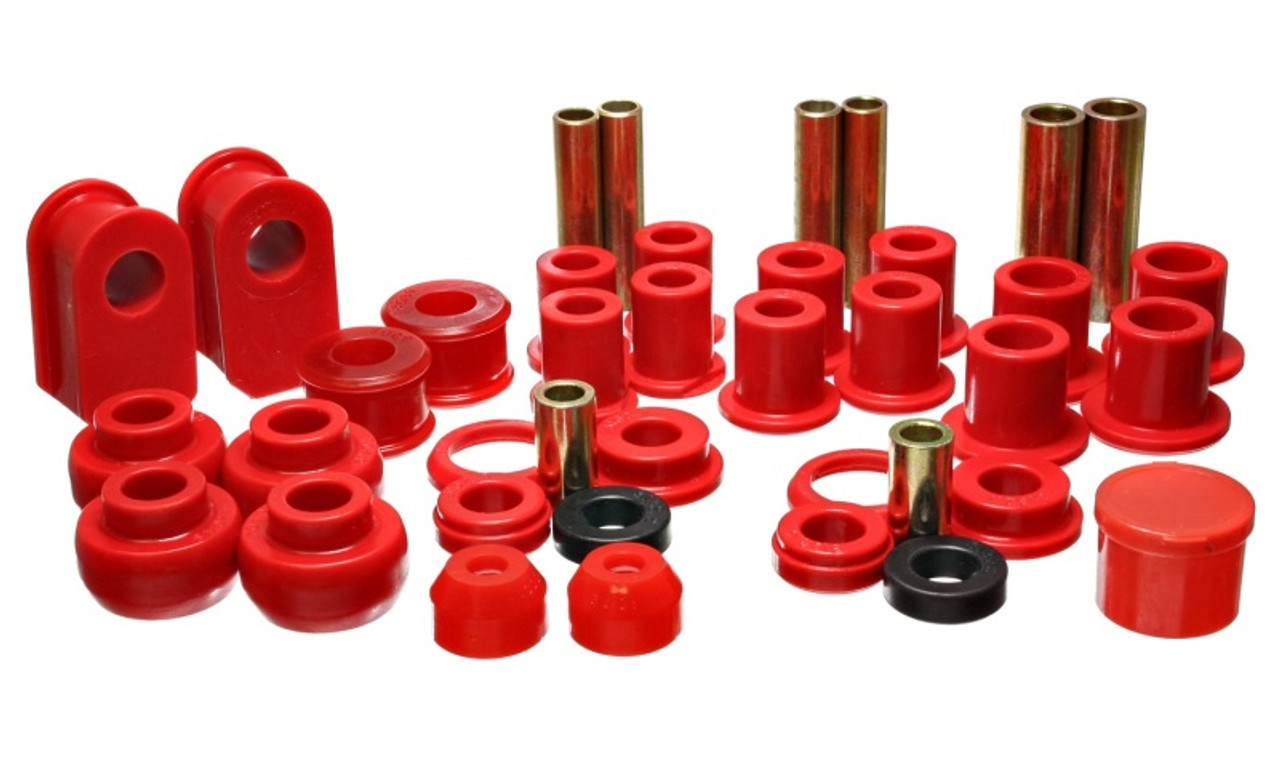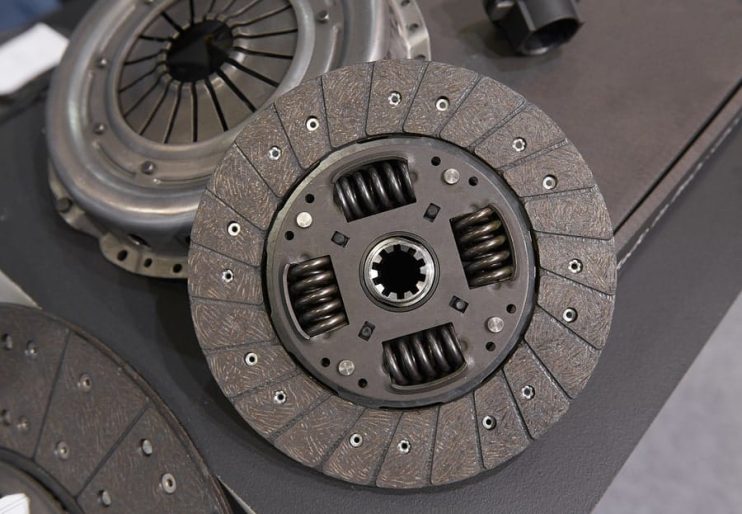Brakes can squeak when you start driving due to surface rust that forms on the brake rotors overnight. The initial friction between the brake pads and the rust causes the squeaking sound, which usually diminishes as the rust wears off.
When you start driving and hear the unpleasant sound from your brakes, it can be concerning and leave you wondering why it’s happening.
The sound is called squeaking noise, that’s commonly associated with a phenomenon known as brake squeal. A brake squeal occurs when conditions are met, such as the brake pads being worn down or the rotors glazed.
The consequences of brake squeaking should not be ignored, as they can indicate potential issues with your braking system.
Failing to address this noise may result in more brake component damage, decreased braking effectiveness, and potential road safety risks.
This article will explore the causes of brake squeaks, why it is necessary to fix them, and the potential repercussions of ignoring this issue.
Why Do My Brakes Squeak When I First Start Driving?
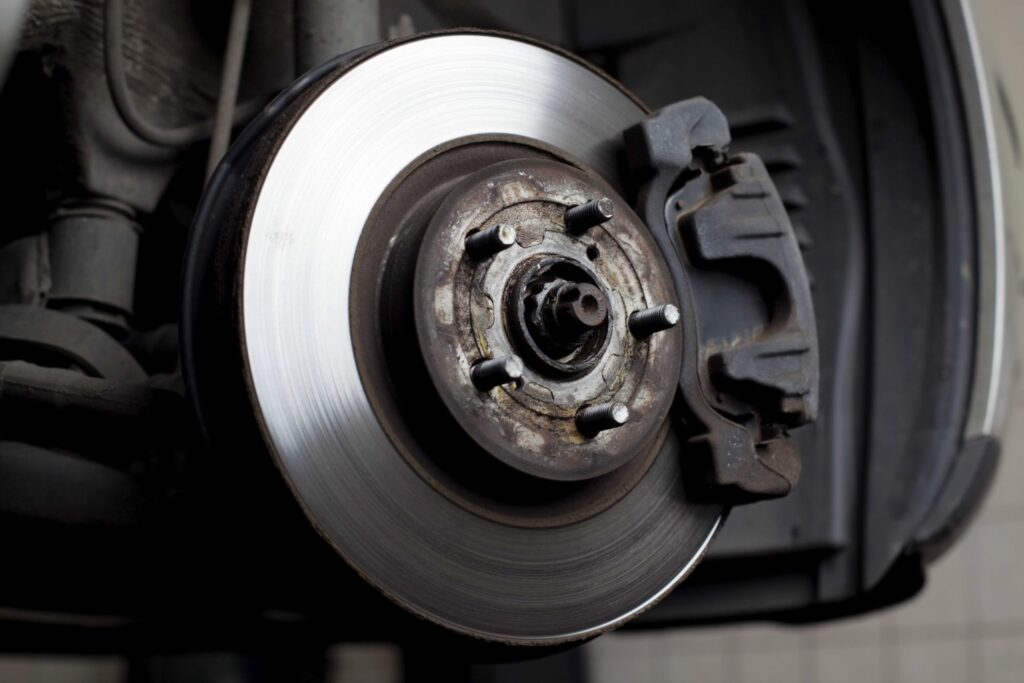
Brake squeak is a common issue many drivers experience when they first start driving. A high-pitched noise occurs when the brakes are applied, indicating a problem with the braking system.
It is essential to address brake squeak promptly as it can lead to several consequences, including reduced braking performance, increased stopping distances, and potential damage to other braking system components.
Here’s why brakes may squeak when you first start driving, explained elaborately:
Surface Rust Formation:
- Overnight, a thin layer of rust can develop on the brake rotors due to moisture exposure.
- This rust can form during periods of inactivity, such as overnight parking.
Initial Brake Application:
- When you start driving and apply the brakes for the first time, the brake pads come into contact with the rust on the rotors.
- The initial contact between the brake pads and the rust can create a squeaking sound.
Rust Abrasion:
- As you continue driving and apply the brakes more frequently, the brake pads gradually wear off the thin layer of rust.
- This process helps smoothen the brake pad’s contact with the rotors and reduces the squeaking noise.
Temporary Nature:
- The squeaking noise is often temporary and typically diminishes after a short driving period.
- Continued brake use helps remove the rust from the rotors, leading to smoother and quieter braking.
Cold Weather Impact:
- Cold weather can accelerate the formation of rust on the rotors due to increased moisture levels.
- As a result, you might notice more pronounced squeaking during colder months.
Harmless Effect:
- In most cases, the squeaking noise is usually harmless and doesn’t affect the performance of the brakes.
- It’s primarily a result of the initial friction between the brake pads and the rust.
Professional Inspection:
- The harmless, persistent, or abnormal brake noises should prompt a professional inspection.
- A mechanic can verify that the noise is rust-related and not indicative of other brake issues.
In summary, the squeaking noise when you first start driving is often due to the contact between the brake pads and the rust that forms on the rotors. This temporary noise typically fades as you continue driving and using the brakes.
What Will be the Consequences if You Ignore the Brake Squeak?
Brake Squeaking is a minor sound that may occur when you start the vehicle. So you may want to ignore the sound and carry on with your driving.
But ignoring brake squeaking can lead to several consequences that affect both your vehicle’s performance and your safety. Here’s a breakdown of the potential outcomes:
Reduced Braking Efficiency:
Brake squeaking might indicate worn brake pads or other issues. Ignoring this can reduce braking power, leading to longer stopping distances and compromised safety.
Increased Wear and Damage:
Squeaking can be a sign of friction between the brake components. Over time, this can accelerate wear on brake pads and rotors, potentially leading to more expensive repairs.
Uneven Brake Wear:
Ignoring the squeak might lead to uneven brake pad wear. This unevenness can cause an imbalance in braking performance, making your vehicle pull to one side during braking.
Rotor Damage:
Sustained squeaking can cause heat buildup, leading to heat cracks or warping in the brake rotors. This can result in pulsating or shaky braking and necessitate costly rotor replacement.
Safety Concerns:
Brakes play a vital safety role, and neglecting squeaking may hinder emergency stopping, raising accident risks.
Costlier Repairs:
What could start as a minor issue may escalate if left unaddressed? Pre-addressing brake squeaking is generally more cost-effective than dealing with extensive damage later.
Loss of Comfort:
Persistent squeaking can be annoying and affect your driving comfort. Quickly resolving the issue can enhance your overall driving experience.
Reduced Resale Value:
A well-maintained braking system adds value to your vehicle. Ignoring brake issues, including squeaking, could lower your car’s resale value.
Legal and Insurance Implications:
If an accident occurs due to brake failure resulting from neglected maintenance, it could have legal and insurance ramifications.
Compromised Confidence:
Ignoring brake squeaking can erode your confidence in your vehicle’s reliability, affecting your peace of mind while driving.
It’s crucial to give importance to brake squeaking, which is natural in many cases. Regularly inspect and maintain your braking system, addressing any issues promptly to avoid these potential consequences.
How to Address Brake Squeaking in Your Vehicle?
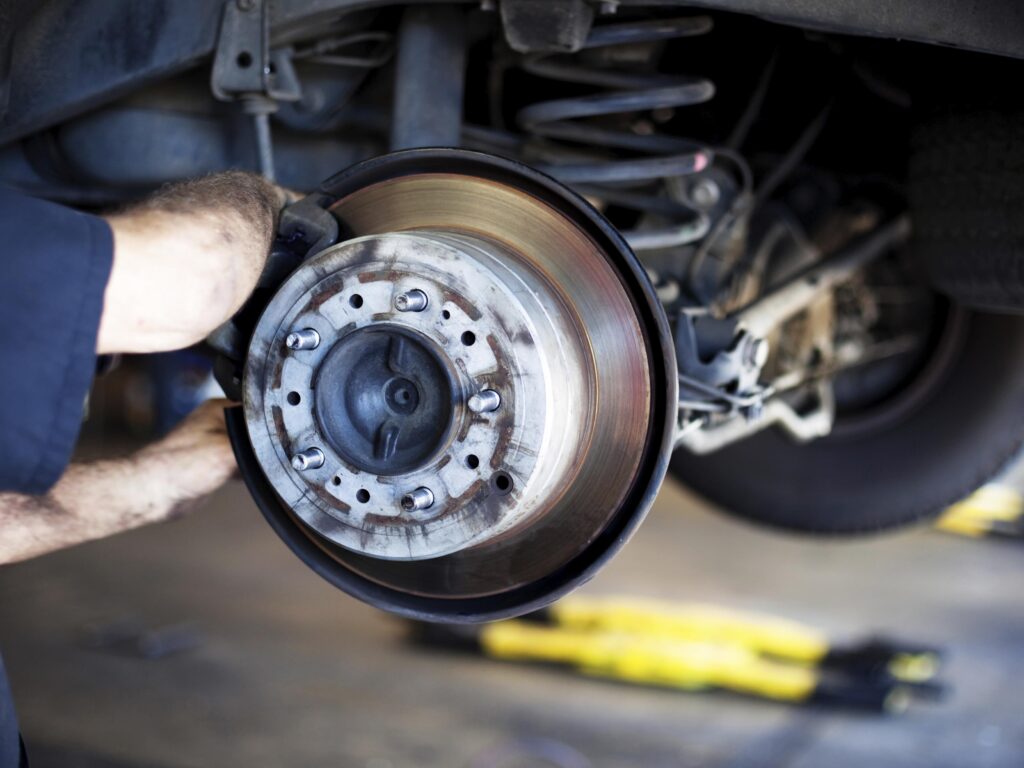
Addressing brake squeaking in your vehicle involves several steps to ensure safe and effective resolution. Follow these guidelines:
Note: If you’re uncomfortable performing these tasks, you should seek assistance from a professional mechanic.
Gather Supplies:
- Jack and Jack stand
- Lug wrench
- Brake cleaner
- Wire brush or sandpaper
- Lubricant (brake lubricant or high-temperature grease)
Safety First:
Park the vehicle on a flat surface, activate the parking brake, and put on safety gear.
Elevate the Vehicle:
Utilize a jack to elevate the vehicle and then stabilize it using jack stands.
Remove the Wheels:
Loosen the lug nuts, raise the vehicle, remove the lug nuts, and detach the wheels.
Inspect Brake Components:
Examine the brake pads, rotors, and calipers for signs of wear, damage, or uneven surfaces.
Clean the Brakes:
Use brake cleaner to thoroughly clean the brake components, removing dust, debris, and rust.
Remove Rust:
Remove the rust from the brake’s surface with a wire brush or sandpaper. While cleaning the rust, make sure you don’t damage the surfaces.
Apply Lubricant:
Apply a thin layer of brake lubricant or high-temperature grease to the back of the brake pads where they contact the caliper and other contact points. Avoid getting lubricant on the rotor’s braking surface.
Reassemble:
Put the wheels back on, hand-tighten the lug nuts, lower the vehicle, and then tighten the lug nuts in a crisscross pattern.
Test Drive:
Go for a test drive in a secure location, progressively using the brakes to observe if the squeaking has lessened.
Monitor Performance:
Pay attention to any changes in brake noise or performance during the test drive. If the squeaking persists or worsens, further inspection may be needed.
Professional Inspection:
If the squeaking continues, consult a professional mechanic. Persistent squeaking could indicate more complex issues, such as worn brake pads, damaged rotors, or other mechanical problems.
Maintaining your vehicle’s braking system is essential for safety. Regular inspection, cleaning, and addressing unusual noises will help ensure your brakes perform optimally and keep you safe on the road.
FAQs
- Is the squeaking sound of your vehicle normal?
Yes, in many cases, the squeaking sound when driving is normal and related to the initial contact between the brake pads and the rust on the rotors. As you continue driving and applying the brakes, the noise should diminish.
- Does cold weather affect brake squeaking?
Cold weather can contribute to the formation of surface rust on the brake rotors, which may lead to temporary squeaking. Warmer weather and continued driving should help alleviate the noise.
- Should I be concerned about the squeaking noise?
Generally, the initial squeaking noise is not a cause for concern, especially if it disappears after a short driving period.
However, if the noise persists or is accompanied by other unusual symptoms, a professional should inspect your brakes.
- Will the squeaking noise damage my brakes?
The squeaking noise itself is unlikely to cause damage. It’s usually a result of the brake pads quickly wearing off the thin layer of rust on the rotors. However, if you experience prolonged or abnormal noises, it’s best to have your brakes checked.
- Can lack of use contribute to the squeaking noise?
Yes, if your vehicle sits for an extended period without use, the brake rotors can accumulate a layer of rust. This can lead to squeaking noises when you start driving again, but they should diminish with regular use.
- Can I do anything to prevent the squeaking noise?
Yes, you can reduce the likelihood of the squeaking noise by gently applying the brakes a few times at a low speed after starting your vehicle.
This helps wear off the thin layer of rust that forms on the brake rotors overnight, which is often the cause of the initial squeaking noise.
- What if the squeaking noise continues after driving for a while?
If the noise persists even after driving for a while, it could indicate other issues, such as worn brake pads, improper lubrication, or brake system problems. Consult a mechanic for a proper inspection.
- Will the squeaking noise go away on its own?
In most cases, yes. As you continue to drive and apply the brakes, the noise should gradually subside as the brake pads wear off the rust and establish smoother contact with the rotors.
- When should I seek professional help for brake noises?
If the squeaking persists, grows louder, or causes unusual symptoms like grinding, vibrations, or altered braking performance, it’s advisable to consult a skilled mechanic to guarantee your vehicle’s safety and functionality.
Conclusion
The accumulated moisture and rust on the brake’s rotor potentially wear the brake pads and cause the brake to squeak.
So, why do my brakes squeak when I first start driving?
Automatically, the question comes to your mind, but the answer is multiple. Several factors affect why your brakes squeak when you initially hit the road.
Ignoring the brake squeaking can lead to reduced braking performance, increased wear on brake components, and potential safety hazards.
So, you must address your vehicle’s brakes squeak and take steps before it becomes too late.







